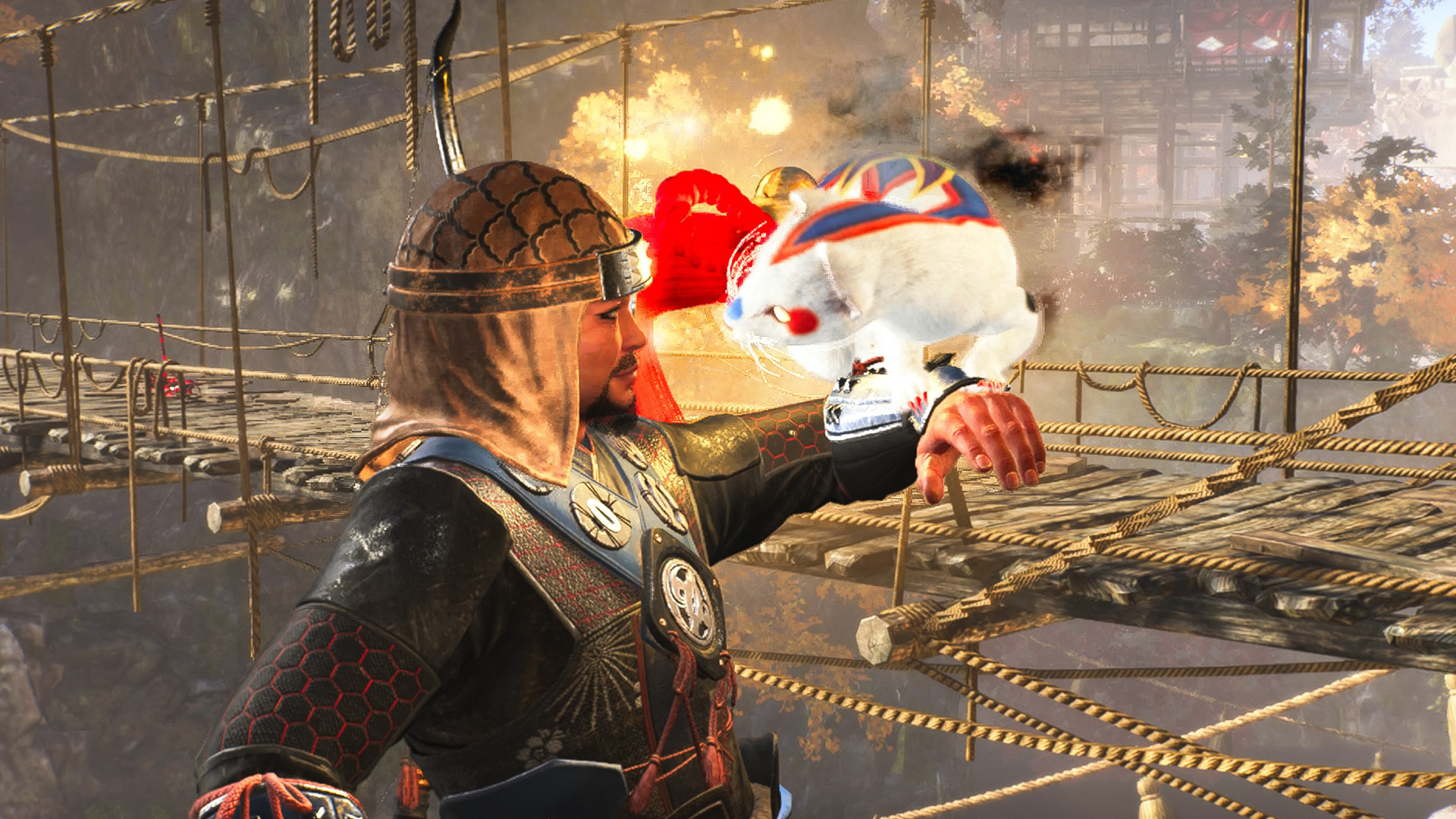I visited a video game archivist trying to preserve some of the world's most forgotten history against all odds, and sometimes even other gamers
Interview | The Strong Museum is protecting what even some game companies won't keep

Weekly digests, tales from the communities you love, and more
You are now subscribed
Your newsletter sign-up was successful
Want to add more newsletters?

Every Friday
GamesRadar+
Your weekly update on everything you could ever want to know about the games you already love, games we know you're going to love in the near future, and tales from the communities that surround them.

Every Thursday
GTA 6 O'clock
Our special GTA 6 newsletter, with breaking news, insider info, and rumor analysis from the award-winning GTA 6 O'clock experts.

Every Friday
Knowledge
From the creators of Edge: A weekly videogame industry newsletter with analysis from expert writers, guidance from professionals, and insight into what's on the horizon.

Every Thursday
The Setup
Hardware nerds unite, sign up to our free tech newsletter for a weekly digest of the hottest new tech, the latest gadgets on the test bench, and much more.

Every Wednesday
Switch 2 Spotlight
Sign up to our new Switch 2 newsletter, where we bring you the latest talking points on Nintendo's new console each week, bring you up to date on the news, and recommend what games to play.

Every Saturday
The Watchlist
Subscribe for a weekly digest of the movie and TV news that matters, direct to your inbox. From first-look trailers, interviews, reviews and explainers, we've got you covered.

Once a month
SFX
Get sneak previews, exclusive competitions and details of special events each month!
It's early summer in Rochester, New York. The weather is perfect, even though the lavender hasn't yet bloomed – but I'm in an elevator going down to a basement, frozen like an excited rabbit because I'm about to see the archives at the Strong National Museum of Play.
Established in 1969, The Strong is a palace from a child's notebook – a mess of organic shapes bleeding together in rainbows to form a comfortable home to the World Video Game Hall of Fame, as well as other impressive artifacts like the recently acquired Volition collection, which is what I'm here to see. Once I do, I'm convinced video game preservation – in this dark age of extensive industry layoffs, censorship, and dead games – is one of the only things keeping us from ruin, despite what some skeptics say.
The elevator thuds to the ground, revealing tantalizing – but off-limits – lumps of metal and monitors hidden under blankets like bodies. Director of digital preservation Andrew Borman leads me past them and into the basement, where a seemingly infinite number of shelves, drawers, and boxes protect the past.
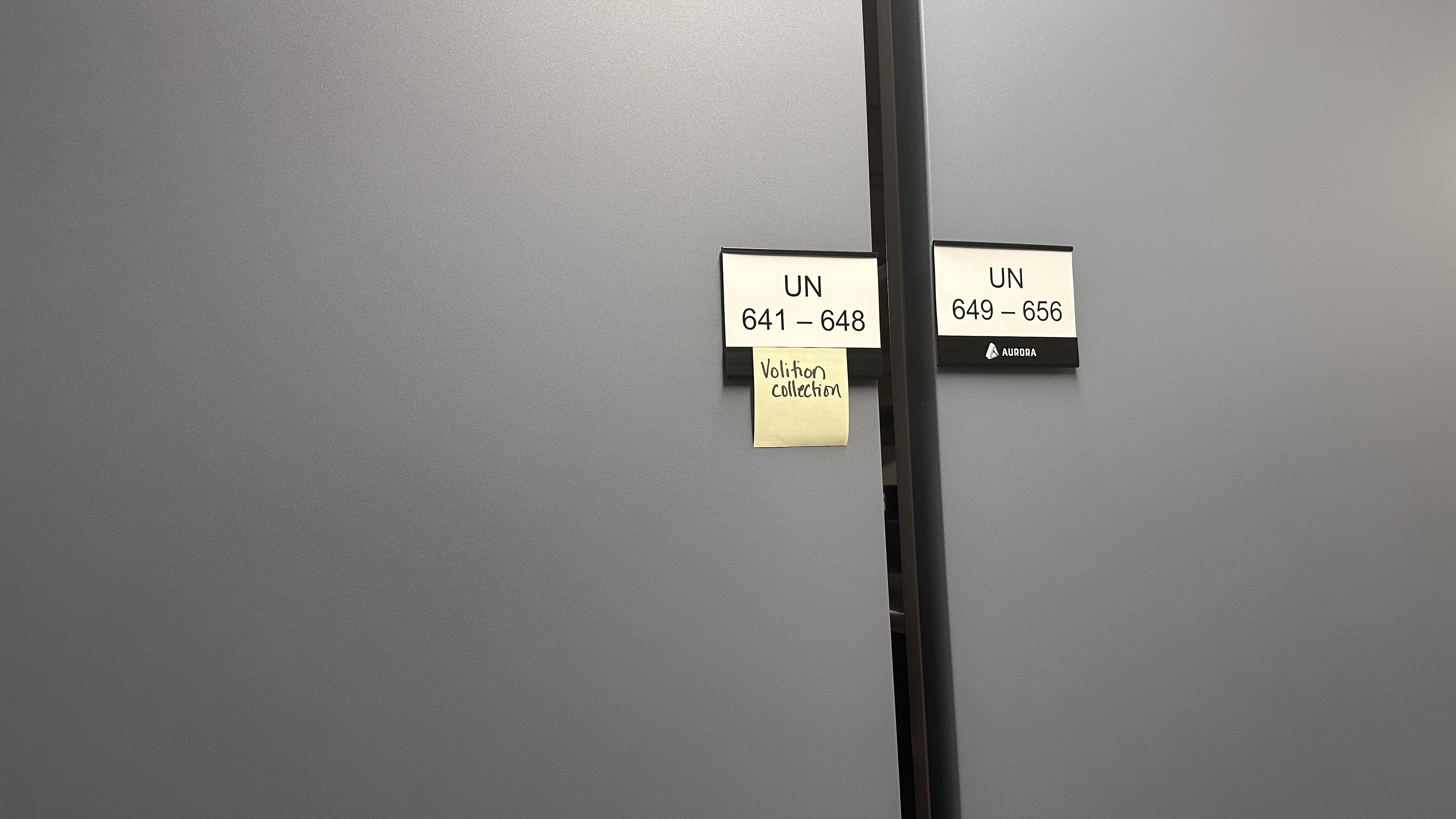
Let's rewind
Borman's affection for preservation started with Resident Evil 2. He remembers, nearly 30 years ago, carrying around the same magazine "for many months" just to marvel at its Resident Evil 2 images.
"There was this classic screenshot of zombies with their arms coming out of the jail cell," Borman tells me. But then something strange happened – those scenes weren't in the eventual Resident Evil 2 demo, nor were they in the final game, which Borman played from start to finish.
"It turns out, with Resident Evil 2, they essentially scrapped the game," he says. "So that, for me, was the start of it all." He realized video games come with secret histories – they're rarely ever just born how they are, like people – and it led him to documenting unreleased builds of hardware and games like Silent Hill Origins on YouTube and later, for the past eight years, at The Strong Museum, where he started assisting with digital games curation. Now, Borman now helps lead that curatorial effort.
"I always say that my favorite collection is the one that I'm working on right now," says Borman.
Weekly digests, tales from the communities you love, and more
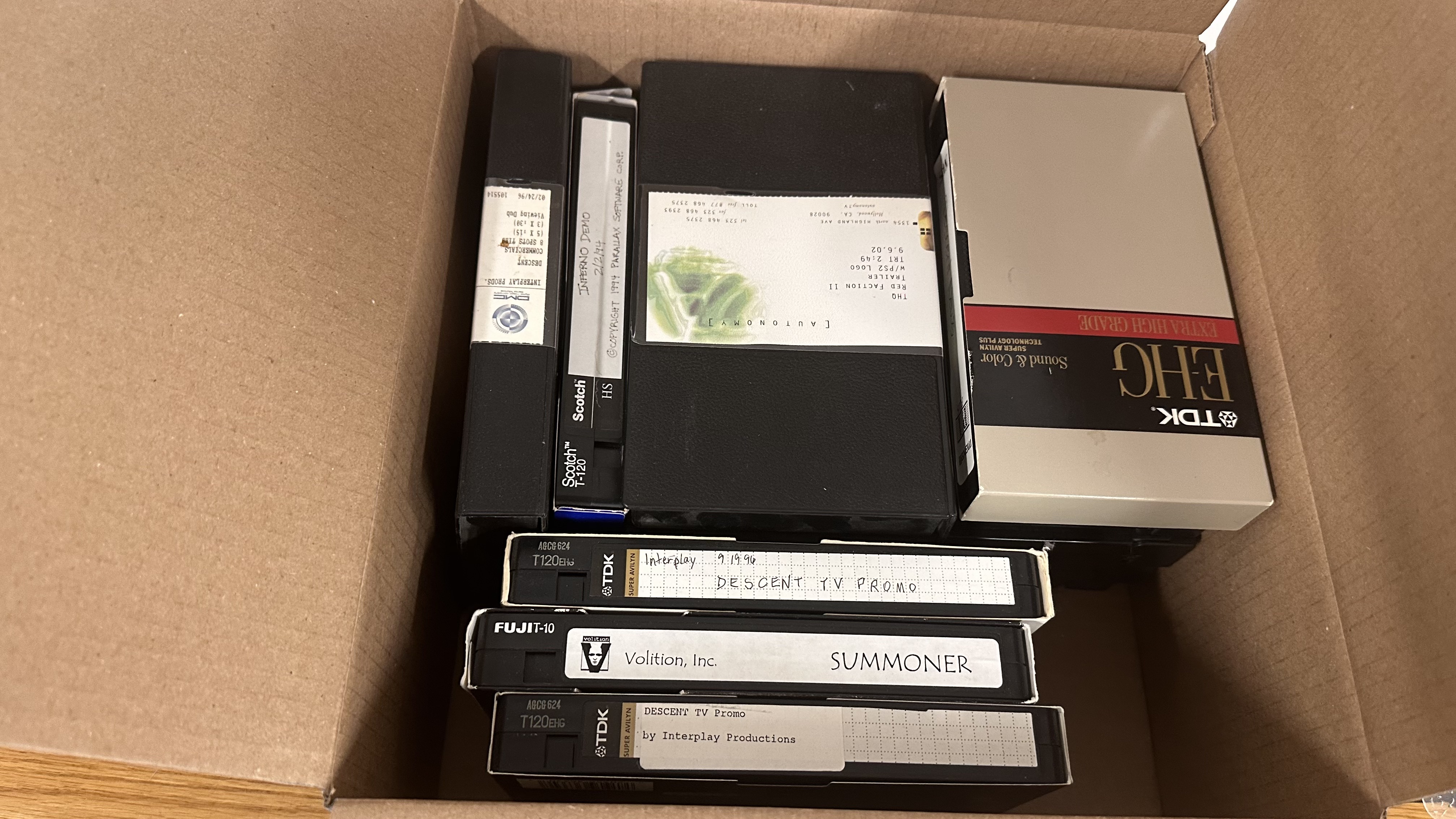
Though, there was that one time a cataloguer set aside a pitch letter that seemed interesting from an otherwise innocuous museum haul.
"And along with that," Borman recalls, "was a floppy disk. And on that floppy disk were things like Commander Keen, and some other software games, and then it also said Mario 3. And it took me about 20 feet between me going from the office into the elevator to realize what it was – a prototype that Ideas from the Deep, which would become id Software, pitched to Nintendo to make a Super Mario Bros. 3 port for DOS Computers."
"As far as I knew, the only other copy that exists [belongs to] John Romero, who was one of the creators of it," says Borman.
My own Volition
I don't often get to play around in a time machine, so I eagerly snap photos of N64's Animal Crossing looking fresh in its lemon yellow box, crates of Famicom titles I can't read, a 1976 handheld game watch containing something called Hello Kitty Seaside Holiday. Hello Kitty is there to the left of its oxidizing screen, holding out a poppy as if to thank me for being impressed.
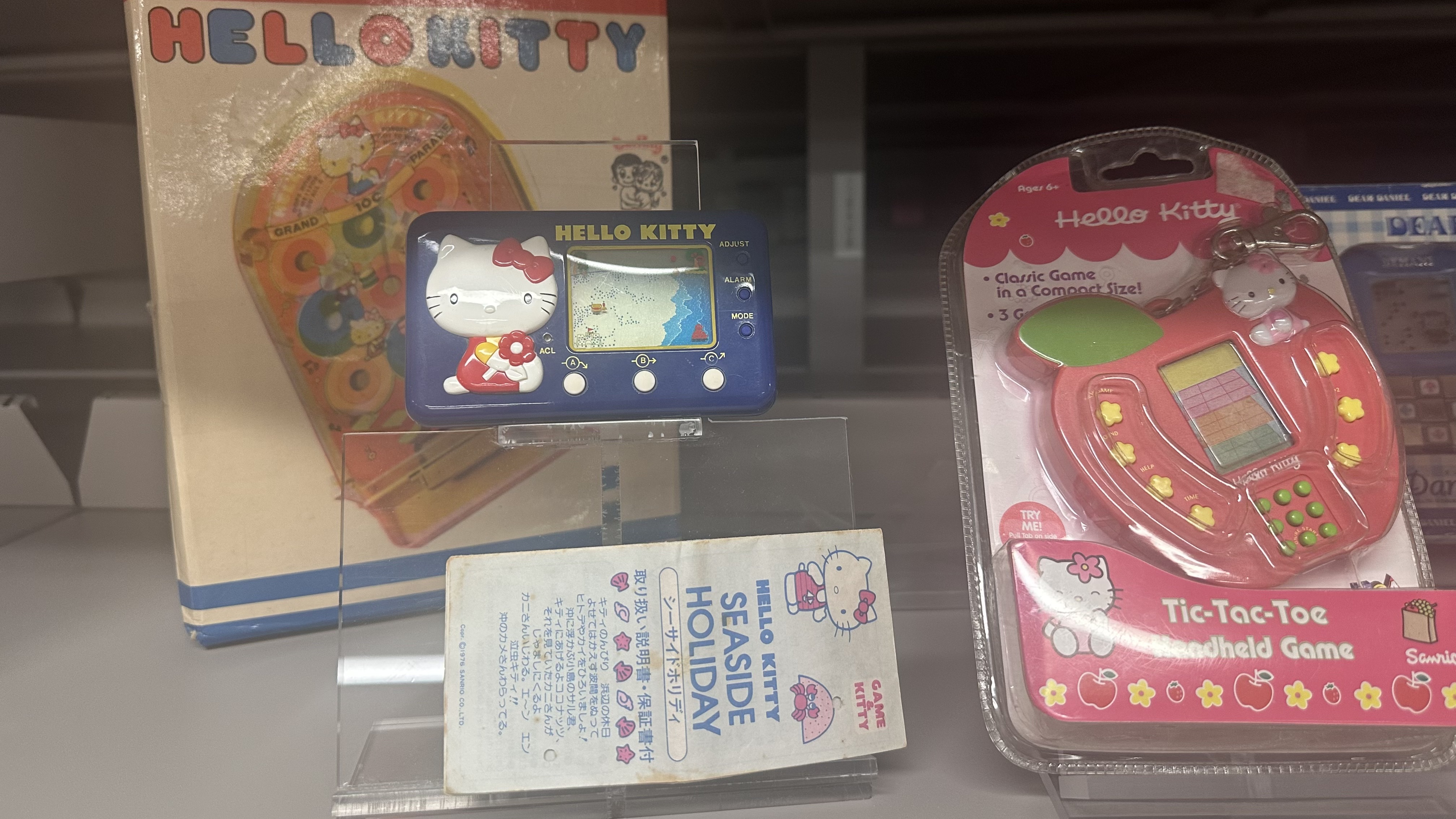
Then, there's the stuff from Volition.
"I think the time that it covers is really important," Borman says, observing that, from 1993's Descent beta to Saints Row in 2022, Volition's games span 30 years of change. This is a fact the studio apparently appreciates, too, even after parent company Embracer abruptly closed it in 2023; Volition developers chose to reach out to The Strong to donate their archives "rather than just throwing them out."
"A few months later, that material arrived, and we've been slowly processing it ever since," says Borman.
Some of it – like a pair of faux snakeskin sneakers for 2011's Saints Row: The Third – is scattered across tables or sitting on the floor, as is the case for a lifesize replica of the Dubstep Gun from Saints Row 4. More waits for me behind nondescript shelving marked with a Post-it: "Volition Collection."
Borman shows me some things I've never seen before: a playable version of the scrapped Batman stealth game Volition made for PS2, scraps of a particularly cursed Harry Potter game, and early Saints Row 2 builds.
After The Strong made its collection public, Borman was heartened by the response. The museum received love letters from both fans of Volition reminiscing about the games they played growing up, or that their fathers used to play, as well as from the defunct studio's former employees.
"To see how thankful they are that it's not all gone – that's why we do it," he says.
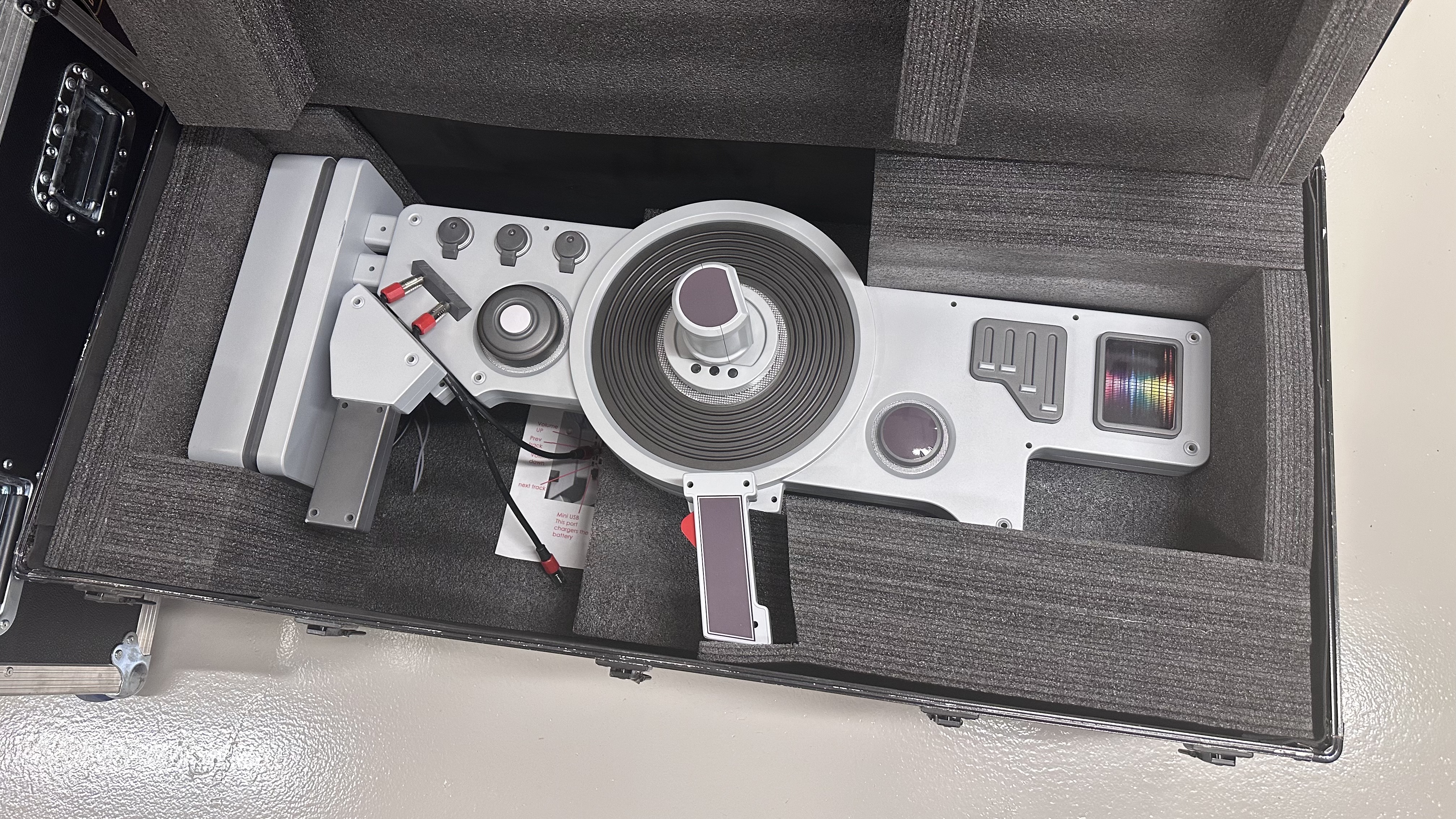
Trouble in paradise
Once Borman is done sorting through the remaining few "thousands of discs, countless pieces of paper that I haven't even looked at yet" from the Volition haul, he says, The Strong will determine how to best make them available to the public. Disappointingly, copyright prevents these materials from being disseminated online, "so there are limits to what we can make remotely accessible," Borman explains. "But, once it's processed, we could start to think, 'Oh, do we want to do an exhibit about Volition? Do we want to incorporate parts of that history in any of the number of other exhibits we're doing?'"
"I think the possibilities are endless," he says.
This is the part where people get angry. From Stop Killing Games to haughty lobbyists terrified of anything they deem immoral, everyone has their own ideas about what a game's life should look like, and how long it should be. We're all overbearing cops in that way. With the Volition archives in particular, Saints Row fans have casually announced plans to "steal them from the museum," complaining that, otherwise, it'll all "rot on some guy's hard drives."
Before my visit to The Strong, I'd scrolled through replies to its Volition news and was surprised by their vitriol – people target both The Strong and Borman himself, who shrugs off my questions and suggests he's used to it. He even understands it.
"For a lot of time, piracy has been the only way that people have been preserving games," says Borman, though he doesn't necessarily see piracy as preservation, "because that wasn't their goal."
"I think what people need to realize is, if we only go by things that could be pirated, only a small portion of video game history is ever going to be preserved," he continues. Hacking servers or leaking press builds is the gentle surface of a deep, wild ocean – the rest of video game history is hidden in old storage bins and emails, aging pieces of scrap paper that even the person who scribbled on it can't remember.
Borman says preservation leaves no space for competition. We can only secure the next 100 years of video games with cooperation, with love from "us plus them, plus everybody else that's still to come."

Ashley is a Senior Writer at GamesRadar+. She's been a staff writer at Kotaku and Inverse, too, and she's written freelance pieces about horror and women in games for sites like Rolling Stone, Vulture, IGN, and Polygon. When she's not covering gaming news, she's usually working on expanding her doll collection while watching Saw movies one through 11.
You must confirm your public display name before commenting
Please logout and then login again, you will then be prompted to enter your display name.
